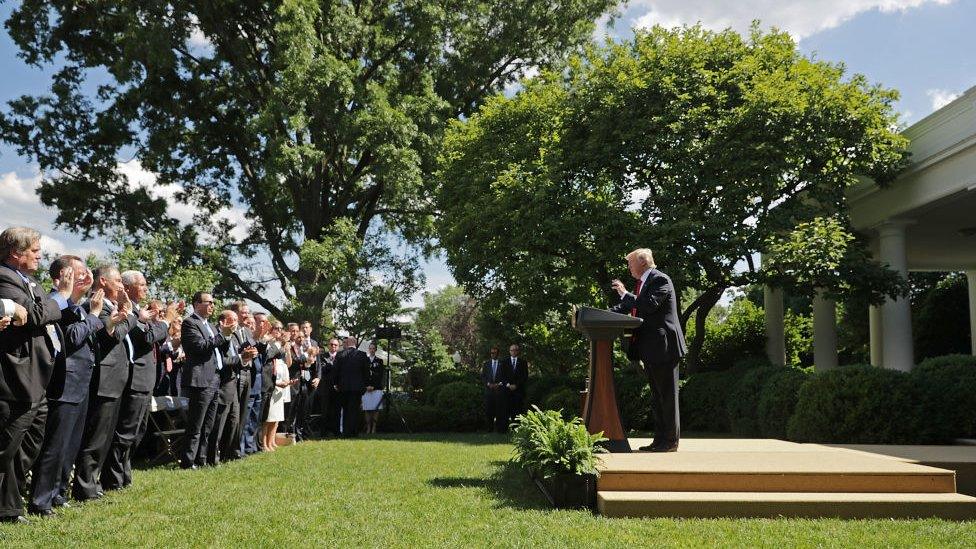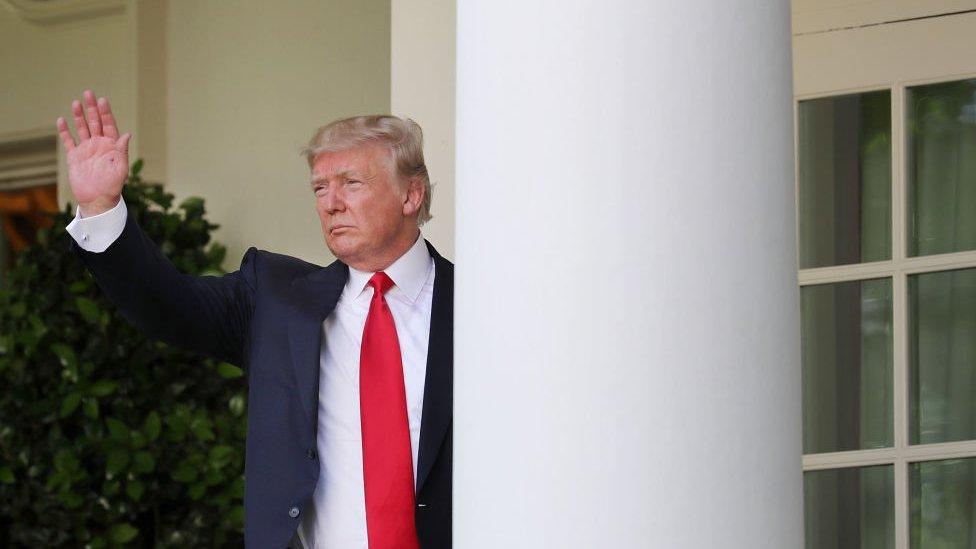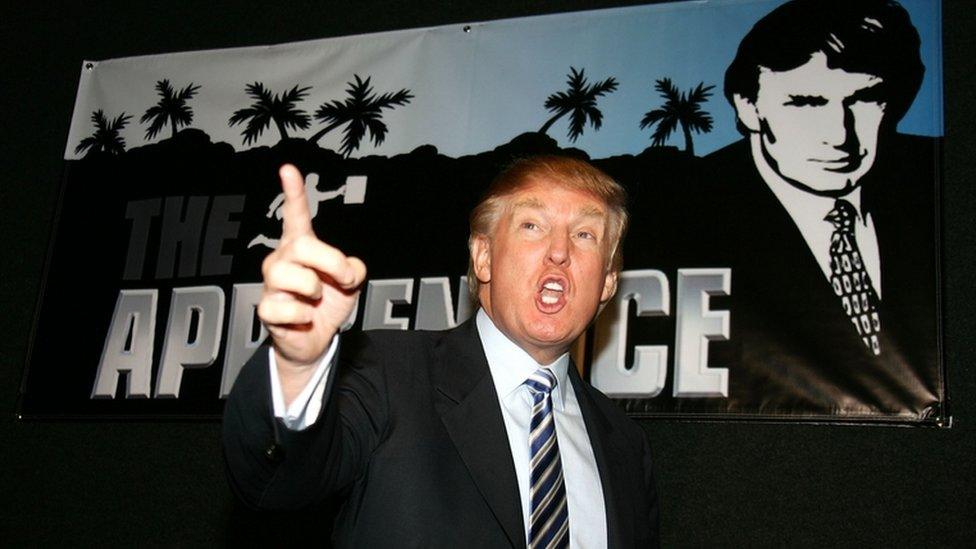Paris Agreement: With Trump, a declaration becomes spectacle
- Published

Drawing on his reality TV years, US President Donald Trump set up a narrative for the climate-change accord and created a spectacular ending. His announcement in the Rose Garden was an example of his tradecraft.
Mr Trump had developed a storyline around the Paris agreement, which calls on all nations to help stop the warming of the planet.
He said some time ago that he would decide whether the US would stay in the accord or withdraw. Last week, his aides told me, he was mulling over his decision.
The end of the drama came on Thursday afternoon in the Rose Garden - Mr Trump announced that the US would withdraw.
He said that his decision marked "a resurgence of American sovereignty", and people in the front row cheered.
He also said he was working for "Pittsburgh - not Paris." One member of the audience, Jim Martin, who wore a Marines baseball cap, called out the name of another city: "Hazard, Kentucky." He told me later he's the son of a coal miner, and he was born and raised there.
While Mr Trump talked, he stood at a podium and gripped both sides. He leaned in towards the mic. You could hear a popping sound when he said the words loudly.
However you felt about Paris, Pittsburgh or the climate-change accord, it was a dramatic show.
Five effects of US pullout from Paris climate deal
Trump seeks new 'fair' climate deal
The president stood under a blue sky with puffy clouds - and a sun so bright that it made cotton dresses warm to the touch. Those who were dressed in jackets and ties were sweating.
The mood, as one of the guests of the president said earlier, was: "Hot."
The production was put on for a small - but important - audience that was made up of the president's supporters. Stephen Bannon, the president's chief strategist, sat in the front section and clapped and smiled. (He also looked sunburned).
He sat near HR McMaster, the national security adviser, and other aides. One of the guests wore sunglasses on top of her head and carried a mobile phone with a sticker on the back that said: "classified".

Many of these guests belonged to a backstage crew, the men and women who write the president's scripts and help him deliver his lines.
The show - like all of the president's productions - was grounded in real-time policymaking and demonstrated how the president operated.
"He cares about the environment," Gary Cohn, the director of the national economic council, told me and other reporters on Air Force One during the president's trip through Europe last week.
Yet, as Cohn said, he was listening to people on both sides of the argument - those who supported the accord and those who saw only its flaws.
The staff members also represented two factions of the Trump administration. The globalists, those who want the US to play a robust role on the world stage, supported the accord. The anti-globalists, those who believe in national sovereignty and place US interests above all, wanted the US out.

Trump shows off his "you're fired" pose before a casting call for his former TV programme
The president chose to consider the issue in a public manner, and turn the debate into an on-going drama that showcased the philosophical divide at the White House - and the president's role as the decider.
The process highlighted the president's managerial style. To put it simply, he loves the muddle: as insiders have told me, he doesn't give special credence to one adviser over another.
Instead he asks nearly all of his advisers what they think about an issue and lets them fight it out. Then he makes up his mind.
Insiders tell me that the president thrives in a volatile environment. They admit that the process is messy, though, and they tell me that at least half of the discord at the White House is simply that - unpredictable, roiling chaos - rather than any sort of grand strategy of presidential policymaking.
For some who work at the White House, it's fun. They're the anti-globalists, and they like operatic scenes. They are high-spirited actors in the White House show.
Pretty much every time I've seen Bannon, for example, he's been smiling (and trying to smooth down his hair, which somehow always looks messy). He thrives on the unpredictable nature of the Trump administration, and has contributed to it.
As one senior staffer told me, sounding exasperated: "He's for the deconstruction of the administrative state."
Yet most of those who work at the White House are not nihilists - not by a long shot. They're bureaucrats, and they've devoted their lives to the idea of administrative order. They often look as though they're under stress - and off-stage, before the cameras start rolling, they sometimes snap at the people around them.
President Trump says the Paris climate accord "disadvantages" US
Critics of the administration say there's another problem - and it's not the stagecraft or dramas that unfold backstage. They say the president is impulsive and cares about the way he's seen, not about any particular issue, whether it's the environment or anything else.
They say that the big production about the accord this week was designed for one reason: to distract people from problems the president has been facing - from rumours about Russia ties to the FBI shake-up - and to ensure he's on centre stage.
David Cay Johnston, the author of The Making of Donald Trump, said that the president is not "sifting through policy", and that he doesn't have a philosophy about the government.
"The only 'ism' that Trump knows is Trumpism," says Mr Johnston.
Trump likes to turn issues like the climate-change accord into a show because it throws people off balance, said Mr Johnston, and it makes him seem as though he's the one in charge.
"He creates this impression of being a strong leader in a black-and-white world," Johnston said. "But the world is mostly grey."
Others said that the drama the president creates around his work at the White House masks an underlying danger - the policies themselves.
"It's a great show," Timothy O'Brien, the author of Trump Nation: The Art of Being the Donald, added. But, he said, it's like standing on a corner and seeing someone in the window, threatening to jump.
"It is compelling," he said. "But no-one really wants to watch the outcome."
- Published1 February 2017